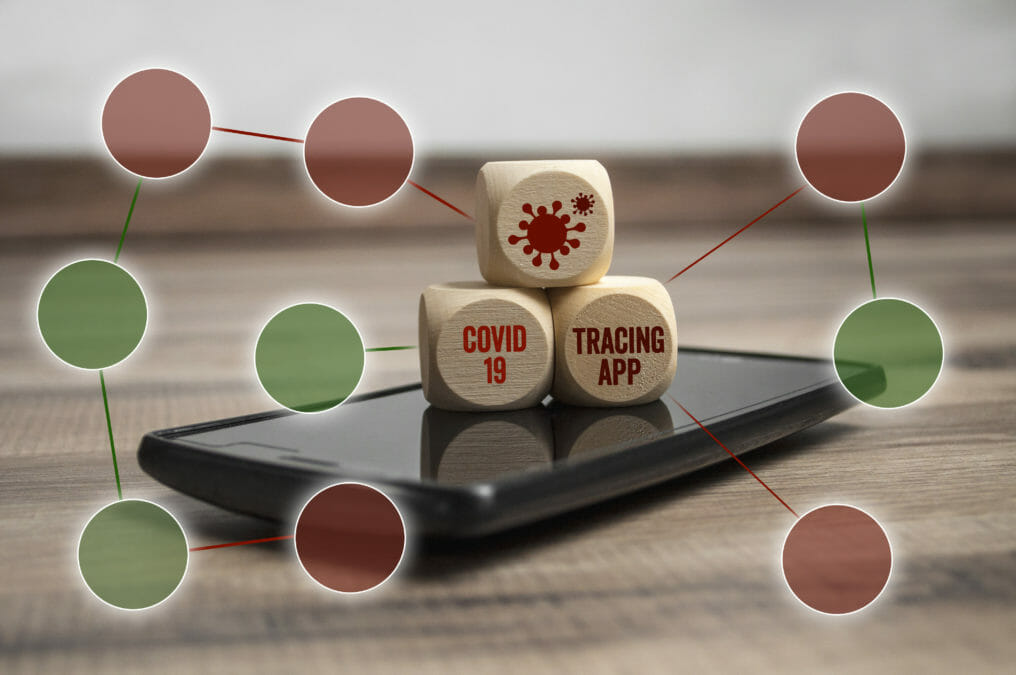The UK’s contact track and trace app has been described as an integral part of lifting lockdown measures. The contact track and trace app relies on personal data such as postcode data to alert users on whether they’ve been exposed to coronavirus, allowing countries to control its spread.
Understandably, the app has raised data privacy concerns.
That’s not the only potential hiccup. In order for the app to be successful, experts have claimed it needs a 60% adoption rate. Other countries have launched contact tracing apps with little impact. Singapore’s TraceTogether was only downloaded by a quarter of the population, Iceland saw app adoption rates of 40% and Norway’s app, which achieved just 20% adoption has already been suspended over data privacy concerns. Trust in the app’s data collection and usage is critical for widespread adoption.
Informed user consent is the key to trust
Building trust in the app from the public to obtain their explicit consent requires clear information on exactly how citizens’ data will be used and protected. The app’s data privacy issues are still hotly debated. This involves concerns such as the long term storage of data, access by third parties and additional location tracking being introduced in the future.
Citizens need to understand exactly what they’re agreeing to when it comes to their personal data. A consent notice which clearly specifies what will happen to users’ data upon sharing is crucial. Gone are the days where users unknowingly share their personal information as the norm — the public now fully understands their data has value.
A clear choice needs to be given to citizens as to whether they consent or not to these uses of their data. Some of the UK public will understandably choose not to share their data, but those that do need reassurance over its use and ultimate control over their
information. Providing citizens with ultimate control over their personal information is crucial for building trust and adoption.
What does the new NHSX contact tracing app for coronavirus mean for data protection?
Keeping earned trust with continuous data transparency
Earning users’ trust via informed consent will help encourage adoption rates. However, the app’s user base will also need to be retained and increased over a prolonged period of time. If changes are made to the way data’s used, handled or stored, the user needs to be made aware immediately.
Citizens should then be able to withdraw their consent at any time should they choose to, with no consequences. Providing an option to remove consent may seem counterintuitive for keeping users, but the choice in fact allows users to share information more willingly.
By allowing the public greater control over their data, in line with data regulations, the UK maximises the chance of users continuing to use these apps for as long as is needed.
Trusted and traceable consent
Users’ consent to the app’s purposes should also be traceable. A complex and difficult feat to manage nationwide given the likely fluctuation of users’ preferences over time. A record of when users decided to provide, withdraw or reshare their data during their entire app journey is vital. It may seem administerial, but a detailed record, which can be requested as proof of consent by either a user or regulator, will protect NHSX from any potential disputes over data sharing.
Trusted consent will make or break the success of the UK’s contact track and trace app. Trust can be built if clear information on the app’s purposes and the data it requires are shared with the public, along with ultimate control over their data throughout. Citizens know their data holds real value, and they will decide whether or not the contact tracing app succeeds long term. The app’s adoption will inevitably ebb and flow, but trust needs to be the anchor that keeps users connected.








